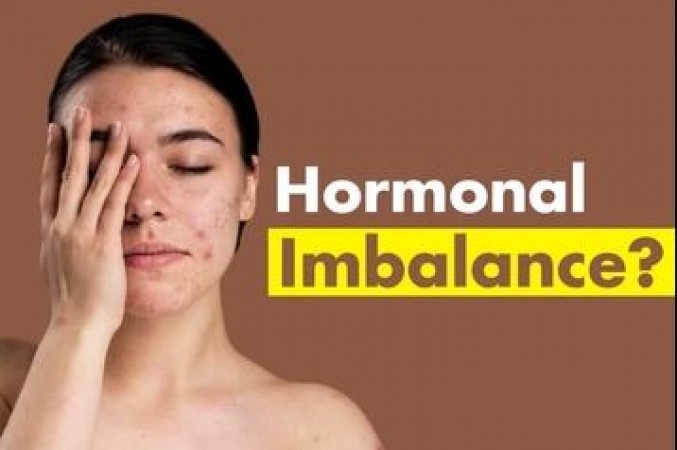
Hormonal imbalance is becoming an increasingly prevalent issue among women, largely due to modern lifestyles and stress factors. Understanding the symptoms and effective treatments for this condition is essential for maintaining overall health and well-being.
What is Hormonal Imbalance?
Hormonal imbalance occurs when there is an excess or deficiency of one or more hormones in the body. Hormones are crucial for regulating a range of bodily functions including growth, metabolism, reproduction, mood, and temperature. When these hormones are not in proper balance, it can disrupt the body's normal processes and lead to various health issues.
Symptoms of Hormonal Imbalance
The signs of hormonal imbalance can vary widely, depending on which hormones are out of balance. Common symptoms include:
Sleep Disturbances: Difficulty falling asleep or staying asleep.
Headaches: Frequent or severe headaches and migraines.
Temperature Sensitivity: Increased sensitivity to heat or cold.
Dry Skin: Noticeable dryness or flakiness in the skin.
Skin Rashes: Unexplained rashes or breakouts.
Heart Palpitations and Blood Pressure Fluctuations: Irregular heartbeats and changes in blood pressure.
Mood Swings: Irritability, anxiety, or depressive feelings.
Excessive Thirst or Frequent Urination: Increased need to drink fluids or frequent trips to the bathroom.
Weak Bones: Increased susceptibility to bone density loss and fractures.
Chronic Fatigue: Persistent feelings of tiredness and lack of energy.
Causes of Hormonal Imbalance
Several factors can contribute to hormonal imbalance in women, including:
Stress: Chronic stress can affect hormone levels, particularly cortisol, leading to imbalances.
Diet: Poor nutritional choices can disrupt hormone production and balance.
Lifestyle Factors: Lack of exercise, poor sleep, and unhealthy habits can impact hormonal health.
Medical Conditions: Disorders such as polycystic ovary syndrome (PCOS), thyroid disorders, and diabetes can cause hormonal imbalances.
Age and Menopause: Hormonal changes during menopause can lead to imbalances and related symptoms.
Effective Treatments for Hormonal Imbalance
Addressing hormonal imbalance often requires a combination of lifestyle changes, dietary adjustments, and sometimes medical intervention. Here are some effective strategies:
1. Lifestyle Changes
Stress Management: Engage in stress-reducing activities like yoga, meditation, or deep breathing exercises.
Regular Exercise: Incorporate physical activity into your routine to help balance hormones and improve overall health.
Adequate Sleep: Aim for 7-9 hours of quality sleep per night to support hormonal regulation.
2. Dietary Adjustments
Balanced Diet: Eat a diet rich in whole foods, including fruits, vegetables, lean proteins, and healthy fats.
Hydration: Drink plenty of water to support bodily functions and hormone balance.
Reduce Sugar and Caffeine: Minimize the intake of sugary foods and caffeinated beverages that can affect hormone levels.
3. Natural Remedies
Pioneering nutrition expert Kiran Kukreja offers a traditional remedy for managing hormonal imbalance:
Ingredients:
1 cup pumpkin seeds
1 cup flaxseeds
1 tablespoon fennel seeds
1-2 cinnamon sticks
Preparation:
Dry roast all the ingredients together for 7-8 minutes.
Allow the mixture to cool and then grind it into a fine powder.
Consume one teaspoon of this powder daily, 30 minutes before breakfast. Chew the powder thoroughly rather than swallowing it whole.
Store the powder in an airtight container for up to one month.
4. Medical Interventions
For severe hormonal imbalances, consulting a healthcare provider is crucial. They may recommend:
Hormone Replacement Therapy (HRT): For conditions such as menopause or thyroid imbalances.
Medications: To manage specific hormonal disorders or symptoms.
Diagnostic Testing: To identify underlying conditions affecting hormone levels.
Hormonal imbalance is a significant issue that affects many women, but with the right approach, it can be managed effectively. By understanding the symptoms, causes, and treatment options, women can take proactive steps to restore balance and improve their overall health. Adopting a healthy lifestyle, making dietary adjustments, and exploring natural remedies can provide relief and support hormonal health. For persistent or severe issues, seeking professional medical advice is essential to ensure appropriate treatment and care.
Celebrating National Nutrition Week 2024: A Guide to Healthier Eating
Ayush Minister Prataprao Jadhav Opens Delhi Health Expo, Announces National Screening Program